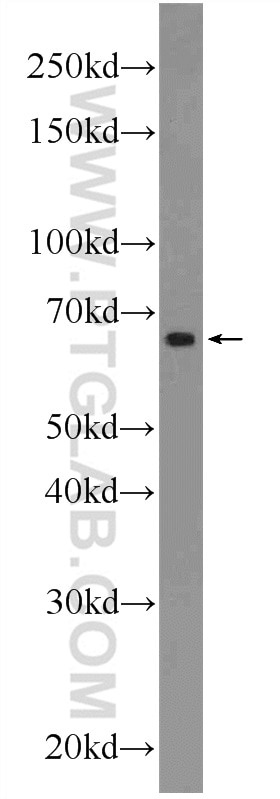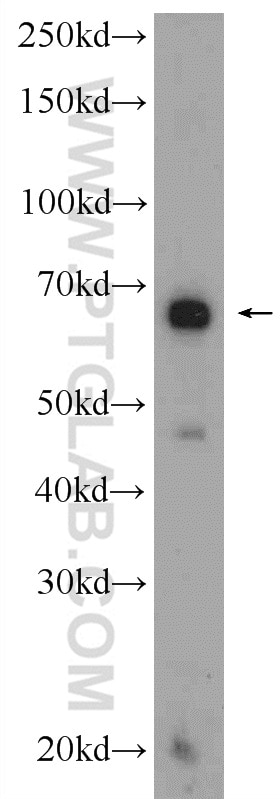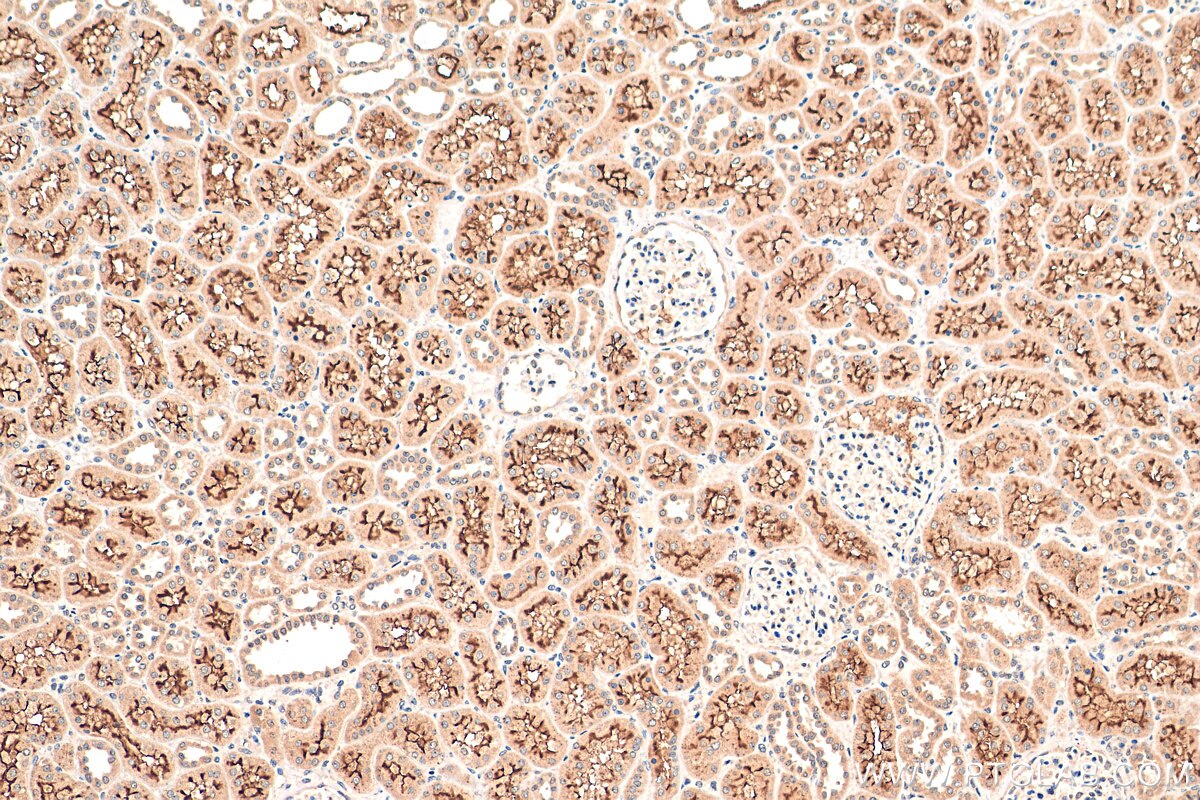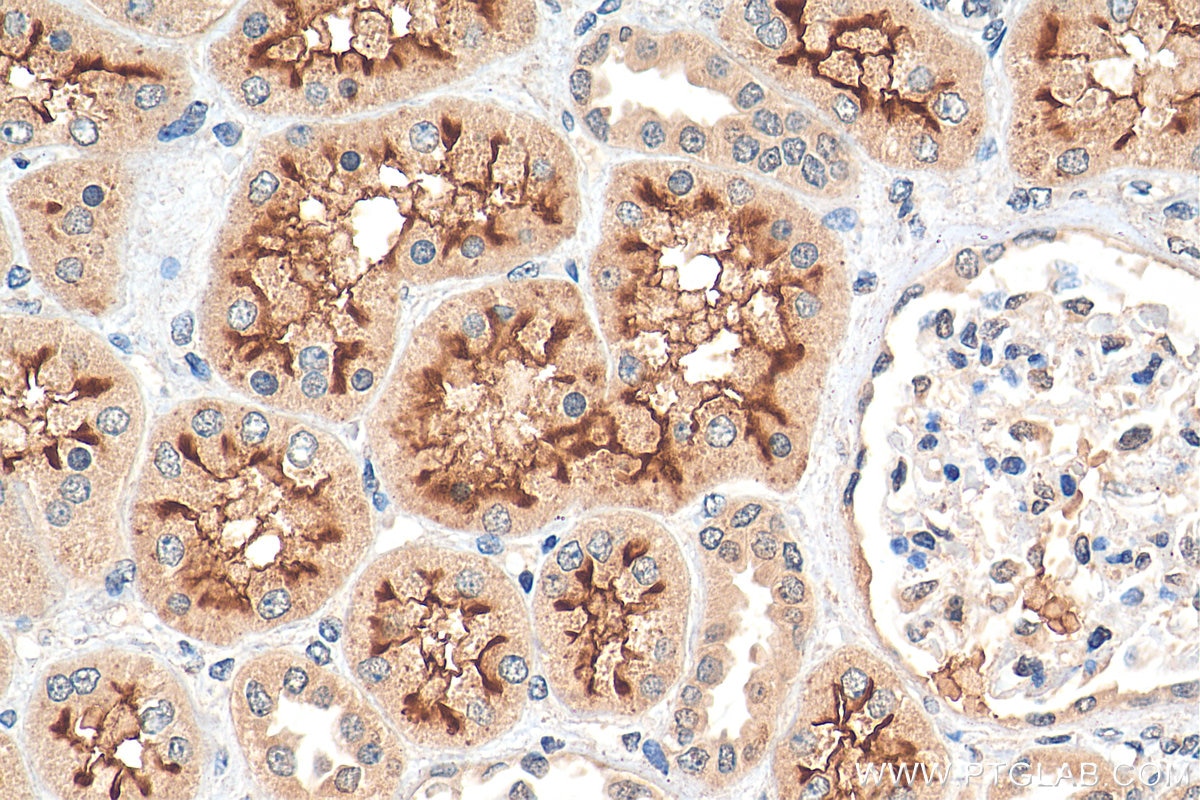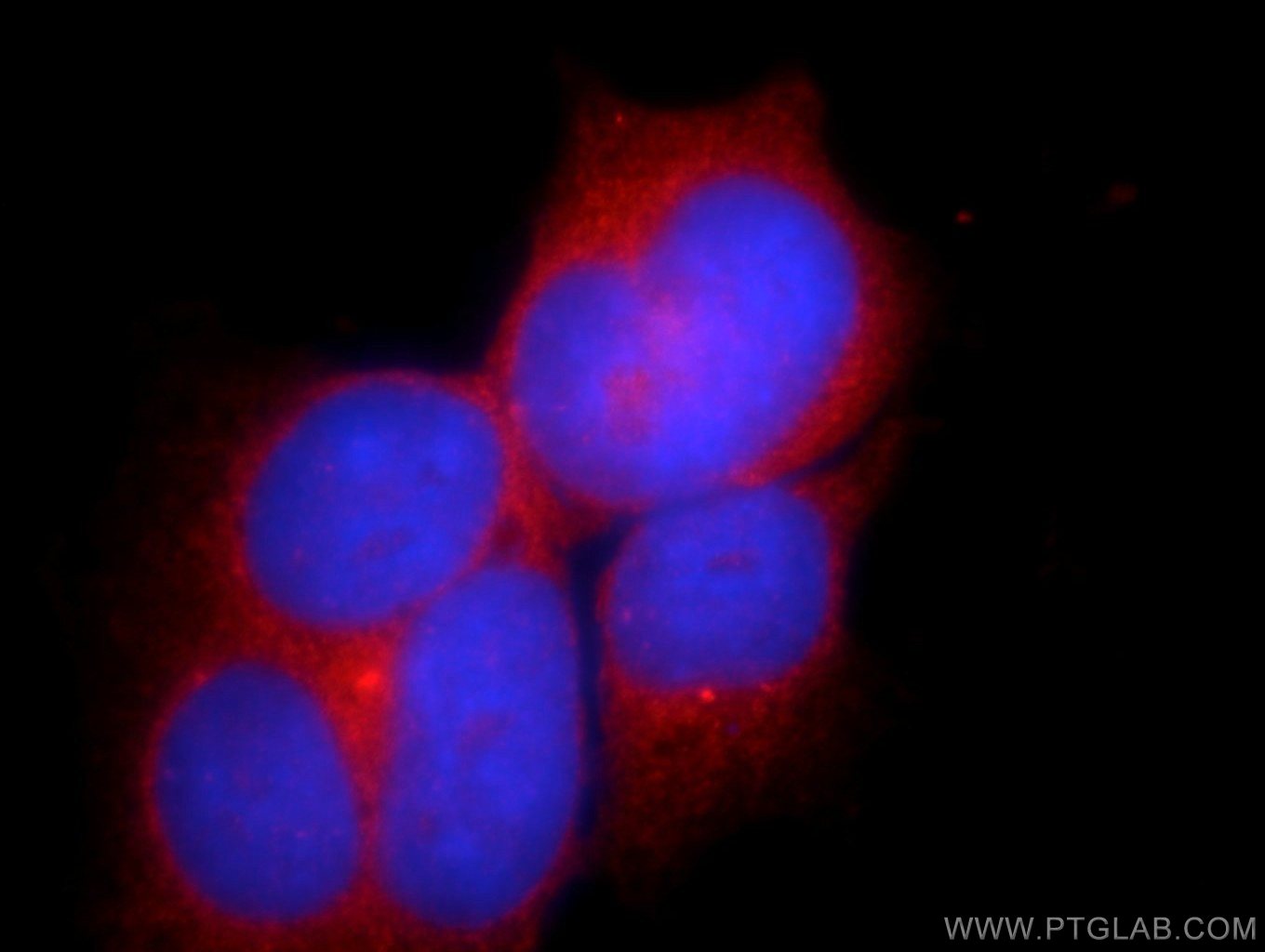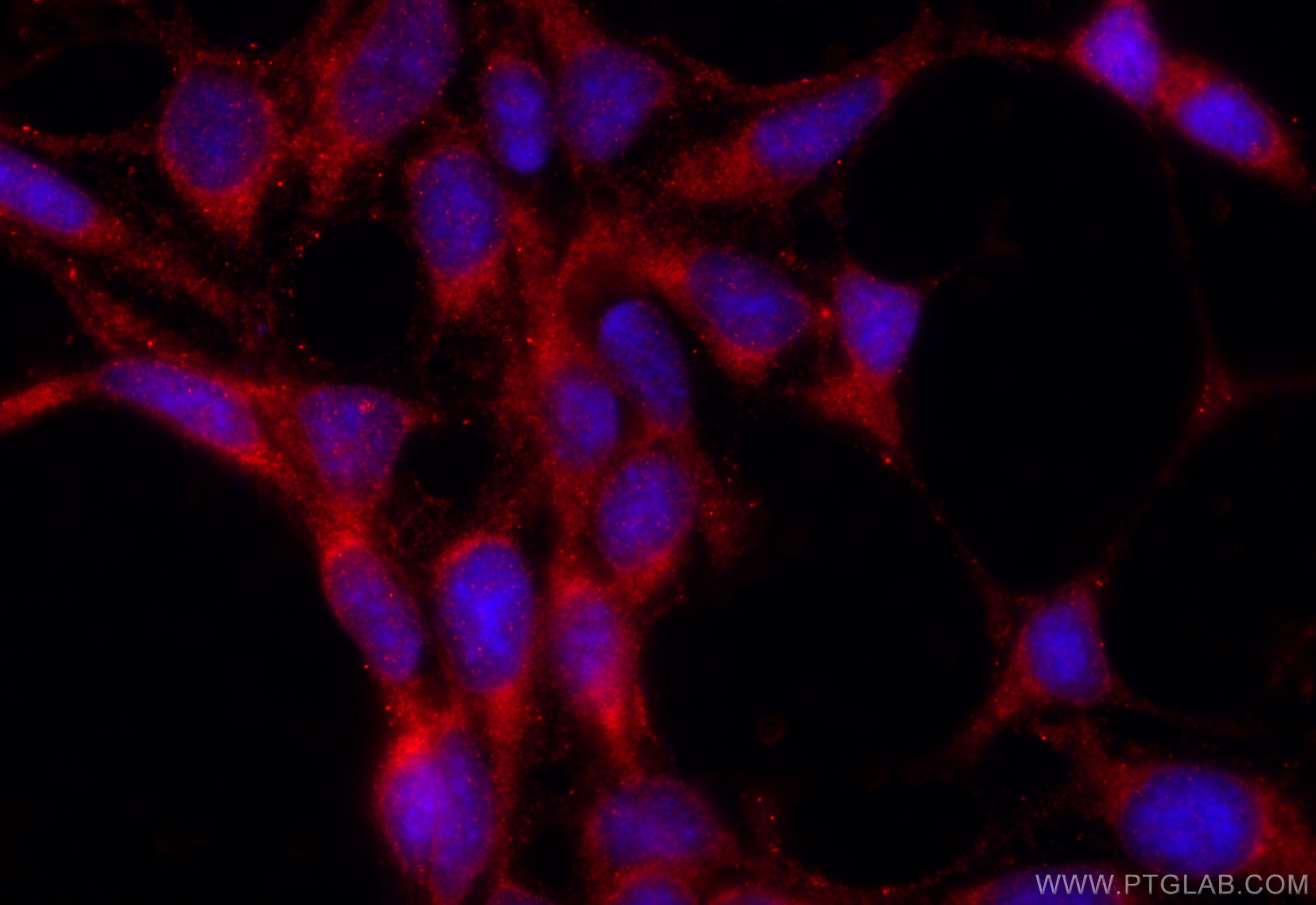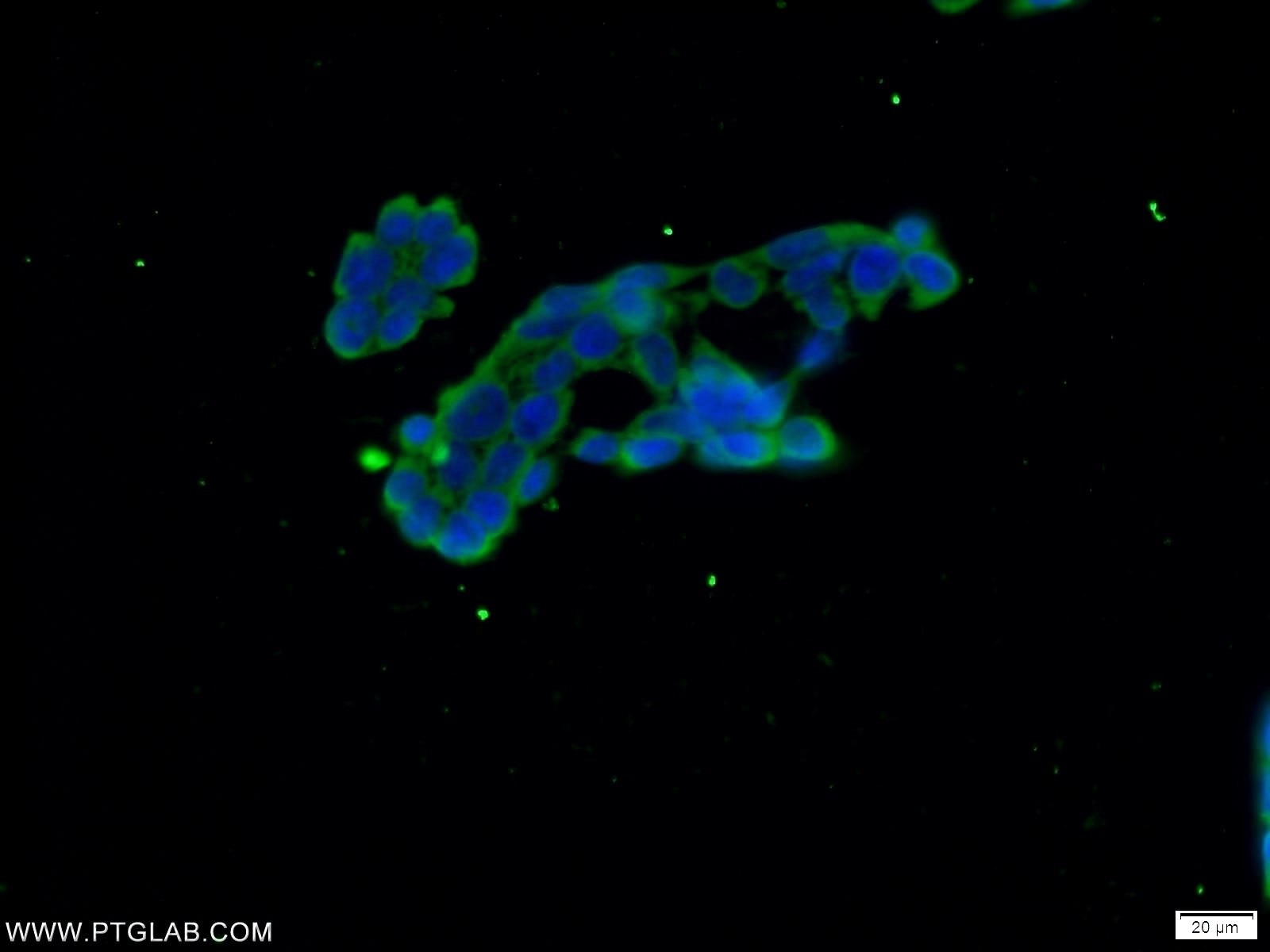Tested Applications
| Positive WB detected in | A549 cells, COS-7 cells |
| Positive IHC detected in | human kidney tissue Note: suggested antigen retrieval with TE buffer pH 9.0; (*) Alternatively, antigen retrieval may be performed with citrate buffer pH 6.0 |
| Positive IF/ICC detected in | HEK-293 cells |
Recommended dilution
| Application | Dilution |
|---|---|
| Western Blot (WB) | WB : 1:500-1:1000 |
| Immunohistochemistry (IHC) | IHC : 1:50-1:500 |
| Immunofluorescence (IF)/ICC | IF/ICC : 1:50-1:500 |
| It is recommended that this reagent should be titrated in each testing system to obtain optimal results. | |
| Sample-dependent, Check data in validation data gallery. | |
Product Information
24975-1-AP targets C10orf68 in WB, IHC, IF/ICC, ELISA applications and shows reactivity with human, monkey samples.
| Tested Reactivity | human, monkey |
| Host / Isotype | Rabbit / IgG |
| Class | Polyclonal |
| Type | Antibody |
| Immunogen |
CatNo: Ag21682 Product name: Recombinant human C10orf68 protein Source: e coli.-derived, PET30a Tag: 6*His Domain: 1-348 aa of BC125091 Sequence: MVPASASGEGLRELLLVQEGEVGADMSHAHNEVPNERLVVEHQESLSKTKLQVKKQETSTEQPLTTPDKEPNENLILRHQDSMSKSEMQVKEQRTLKGQRIITHDEESGENPMLKHQDSVSKIQVQLEIQETSEGEGRSIPDKNSMFVHQDSVSKLQMQEKKKITPGRERRNTRIVVPNENVISVHQDSKSKLQMQEKKQINSGVERHKTFPLEIKKKDISLEHLLPEEKVLLSRSESQTKKLQAKVTSRKKTDIESLRGALGRRLLNDEFKTQSKSFPGPDIEQLTDAFGRDILKDEFKTRSKSLPETDERLHSTTERGTINDAIKTQLKRKSYPETVLKHLKGVNG Predict reactive species |
| Full Name | chromosome 10 open reading frame 68 |
| Calculated Molecular Weight | 628 aa, 71 kDa |
| Observed Molecular Weight | 65 kDa |
| GenBank Accession Number | BC125091 |
| Gene Symbol | C10orf68 |
| Gene ID (NCBI) | 79741 |
| RRID | AB_2879828 |
| Conjugate | Unconjugated |
| Form | Liquid |
| Purification Method | Antigen affinity purification |
| UNIPROT ID | Q96M83 |
| Storage Buffer | PBS with 0.02% sodium azide and 50% glycerol, pH 7.3. |
| Storage Conditions | Store at -20°C. Stable for one year after shipment. Aliquoting is unnecessary for -20oC storage. 20ul sizes contain 0.1% BSA. |
Background Information
chromosome 10 open reading frame 68 (C10orf68) is a 628 amino-acid protein, which may have three isoforms. The function of C10orf68 is still non-known and needs to be further studied.
Protocols
| Product Specific Protocols | |
|---|---|
| IF protocol for C10orf68 antibody 24975-1-AP | Download protocol |
| IHC protocol for C10orf68 antibody 24975-1-AP | Download protocol |
| WB protocol for C10orf68 antibody 24975-1-AP | Download protocol |
| Standard Protocols | |
|---|---|
| Click here to view our Standard Protocols |

